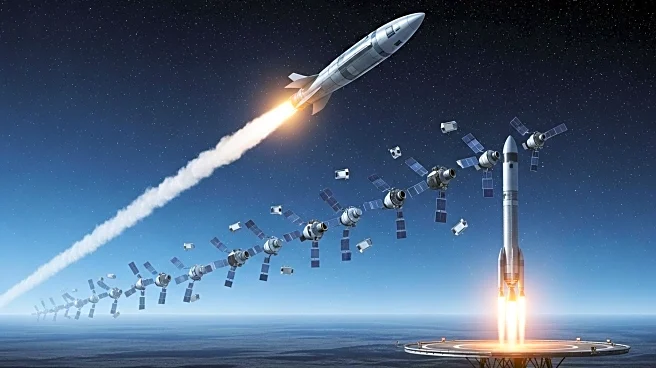What is the story about?
What's Happening?
SpaceX successfully launched 24 Starlink internet satellites into orbit from Vandenberg Space Force Base in California. The Falcon 9 rocket lifted off at 12:26 a.m. EDT, and its first stage landed on the SpaceX drone ship 'Of Course I Still Love You' in the Pacific Ocean about 8.5 minutes later. This marks the 16th flight for this particular booster, which has been used primarily for Starlink missions. The launch is part of SpaceX's ongoing efforts to expand its Starlink megaconstellation, which now includes nearly 8,500 active satellites.
Why It's Important?
The expansion of the Starlink satellite network is crucial for SpaceX's goal of providing global internet coverage, particularly in underserved and remote areas. The successful landing of the Falcon 9's first stage demonstrates SpaceX's continued progress in rocket reusability, which is key to reducing launch costs and increasing the frequency of missions. The growing Starlink constellation represents a significant advancement in satellite internet technology, with potential implications for telecommunications, global connectivity, and competition in the satellite internet market.
What's Next?
SpaceX plans to continue launching Starlink satellites at a rapid pace, with more than 70% of its 2025 launches dedicated to building out the network. The company aims to nearly double its constellation within a single year, an unprecedented expansion in satellite history. As the network grows, SpaceX will likely face regulatory challenges and competition from other satellite internet providers, such as Amazon's Project Kuiper.
Beyond the Headlines
The rapid deployment of Starlink satellites raises questions about space debris and the long-term sustainability of satellite constellations. As more companies enter the satellite internet market, international cooperation and regulation will be essential to manage orbital congestion and ensure safe operations. The expansion of satellite internet also has cultural and ethical implications, as it could transform access to information and communication worldwide.















